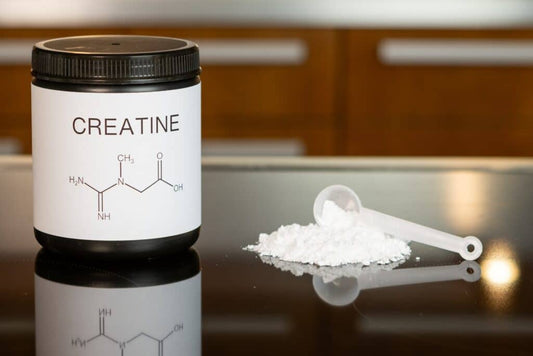Oleuropein: The Secret Ingredient Behind the Mediterranean Diet's Health Benefits

Could the humble olive hold the key to a longer, healthier life? The Mediterranean diet, lauded for its numerous health benefits, has long been a subject of scientific fascination. Central to this diet are olives and olive oil, rich in a compound known as oleuropein. This powerful phenolic compound, found in the leaves, pulp, and seeds of the olive plant, has shown remarkable pharmacological potentials. With its antioxidant, antimigration, antiproliferation, and anti-inflammatory properties, oleuropein may be the secret ingredient contributing to the Mediterranean diet's legendary status.
Unveiling Oleuropein's Healing Powers
Antioxidant Properties
Oleuropein is a potent antioxidant. It neutralizes free radicals, which are unstable molecules that can damage cells and lead to chronic diseases such as cancer and heart disease. Research shows that oleuropein's antioxidant capacity is higher than that of vitamin C, making it a powerful ally in preventing oxidative stress.
Anti-inflammatory Effects
Chronic inflammation is a root cause of many diseases, including arthritis, cardiovascular diseases, and certain cancers. Oleuropein has demonstrated significant anti-inflammatory effects by inhibiting the production of pro-inflammatory cytokines. This helps reduce inflammation and may contribute to the prevention and management of inflammatory diseases.
Antimigration and Antiproliferation
In the context of cancer, oleuropein exhibits antimigration and antiproliferation properties. These effects help prevent the spread of cancer cells and inhibit their growth. Studies have shown that oleuropein can suppress the proliferation of breast, bladder, and prostate cancer cells, highlighting its potential as a complementary treatment in cancer therapy.
Oleuropein and Cardiovascular Health
Cardiovascular diseases are a leading cause of death worldwide. The Mediterranean diet, rich in olive products, has been associated with a lower risk of heart disease. Oleuropein contributes to this protective effect by improving lipid profiles, reducing blood pressure, and preventing the oxidation of LDL cholesterol, which is a critical factor in atherosclerosis development.
Oleuropein and the Microbiome
Recent research suggests that oleuropein may also positively influence the gut microbiome. The gut microbiome plays a crucial role in overall health, influencing everything from immune function to mental health. Oleuropein has been shown to promote the growth of beneficial gut bacteria, which can enhance gut health and, by extension, overall well-being.
Oleuropein in Ancient Healing Practices
The use of olive leaves and olive oil in traditional medicine dates back thousands of years. Ancient Egyptians used olive leaf extracts for their health benefits, while Hippocrates, the father of modern medicine, referred to olive oil as "the great therapeutic." These historical uses align with modern scientific findings, suggesting that ancient healers may have been aware of oleuropein's benefits long before contemporary science.
Integrating Oleuropein into Modern Diets
Given the extensive benefits of oleuropein, incorporating olive products into modern diets is a practical way to harness its health-promoting properties. Here are some innovative ways to include oleuropein-rich foods in your daily routine:
Olive Leaf Tea
Brewing tea from olive leaves is a simple way to enjoy the benefits of oleuropein. Olive leaf tea can be a soothing beverage with potent health benefits, including boosting the immune system and reducing inflammation.
Olive Oil in Cooking
Using extra virgin olive oil as your primary cooking oil ensures you receive a healthy dose of oleuropein. It's perfect for drizzling over salads, roasting vegetables, or even baking.
Olive Supplements
For those who find it challenging to consume enough olive products through diet alone, olive leaf supplements can be a convenient alternative. These supplements concentrate the beneficial compounds, providing a potent dose of oleuropein.
Oleuropein, the Heart of the Mediterranean Diet
Oleuropein, with its myriad health benefits, truly stands out as a cornerstone of the Mediterranean diet. Its powerful antioxidant, anti-inflammatory, antimigration, and antiproliferation properties make it a key player in promoting health and preventing disease. By integrating oleuropein-rich foods or taking an oleuropein supplement into our diets, we can tap into the ancient wisdom of the Mediterranean and embrace a lifestyle that supports longevity and well-being. Whether through olive oil, olive leaf tea, or an oleuropein supplement, incorporating this potent compound into your daily routine can be a transformative step towards optimal health.
References
- Antioxidant properties of oleuropein in olive oil - Journal of Agricultural and Food Chemistry. Available at: https://pubs.acs.org/doi/10.1021/jf1015939
- Oleuropein's anti-inflammatory effects - Molecular Nutrition & Food Research. Available at: https://onlinelibrary.wiley.com/doi/10.1002/mnfr.201600009
- Cancer cell growth inhibition by oleuropein - International Journal of Oncology. Available at: https://www.spandidos-publications.com/10.3892/ijo.2018.4547
- Oleuropein's cardiovascular benefits - Cardiovascular Research. Available at: https://academic.oup.com/cardiovascres/article/116/5/875/5571211
- Oleuropein and gut microbiome - Frontiers in Microbiology. Available at: https://www.frontiersin.org/articles/10.3389/fmicb.2019.01764/full
- Historical uses of olive leaf extracts - Journal of Ethnopharmacology.



